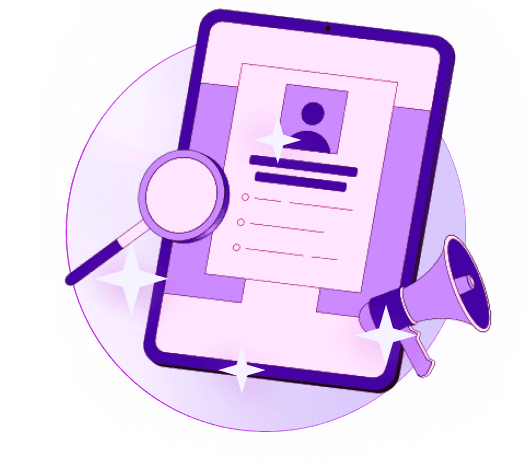Blogs
Articles


Unlock the Power of AI to Improve Your Close Rate
Harnessing the power of. Artificial Intelligence (AI) Has become a game-changer for sales professionals aiming to enhance their close rates. AI technology offers a myriad of tools and analytics that can revolutionize the sales process by providing valuable insights, predictive analysis, and personalized recommendations.
By leveraging AI algorithms, sales teams can streamline their operations, identify lucrative opportunities, and engage with potential leads more effectively. This introduction explores the transformative impact of integrating AI into sales strategies and how it can empower sales representatives to make. data-driven decisions , optimize their workflows, and ultimately, boost their close rates.
Discover how embracing AI can not only increase productivity but also drive revenue growth, improve customer relationships, and position businesses ahead of the competition in today's fast-paced sales environment.
Ways AI Can Improve Close Rates
Leveraging artificial intelligence (AI) has become a game-changer for improving sales close rates.
Let's explore how AI can revolutionize the sales process and drive better outcomes:.
Lead Scoring and Qualification: Enhancing Lead Quality
AI-powered algorithms can not only analyze vast amounts of data to identify high-quality leads but also help in qualifying them effectively. By automating the lead scoring process, sales teams can focus their efforts on leads with the highest potential to convert, ensuring a higher close rate and more efficient use of resources.
Predictive Analytics for Sales Forecasting: Anticipating Customer Needs
Utilizing AI for predictive analytics goes beyond just forecasting sales; it enables sales teams to anticipate customer needs and preferences. By analyzing historical sales data, market trends, and customer behavior, AI empowers sales professionals to tailor their strategies proactively, increasing the chances of closing deals successfully.
Personalized Communication with AI: Building Meaningful Relationships
AI-driven tools allow sales teams to engage in personalized communication with prospects on a significant scale. By understanding customer interactions and preferences, AI can recommend tailored content, suggest the most effective communication channels, and even assist in crafting personalized messages. This personalized approach fosters stronger relationships with prospects, leading to higher trust levels and improved close rates.
Automating Routine Tasks: Increasing Efficiency
One of the significant advantages of AI in sales is its ability to automate routine and time-consuming tasks. From data entry to scheduling appointments and sending follow-up emails, AI streamlines these processes, freeing up valuable time for sales professionals to focus on strategic activities. By automating these tasks, sales teams can improve productivity and dedicate more attention to activities that directly impact close rates.
Where customer expectations are constantly evolving, the role of AI in sales cannot be overstated. Beyond the discussed points, AI also enables dynamic pricing strategies based on market demand and competitor analysis, further enhancing the chances of closing deals profitably.
Moreover, AI-powered chatbots provide immediate customer support, answering queries and providing information round the clock, thereby nurturing leads and facilitating conversions. The integration of AI in CRM systems ensures that sales teams have access to real-time, data-driven insights, enabling them to make informed decisions and adapt their sales strategies promptly.
Challenges and Considerations
In the realm of implementing a new customer relationship management (CRM) system, several challenges and key considerations must be addressed to ensure a successful deployment. From navigating data privacy and ethics concerns to seamlessly integrating with current systems and ensuring effective training for sales teams, each aspect plays a crucial role in the overall success of the CRM implementation.
Data Privacy and Ethics
Safeguarding customer data is of utmost importance in today's digital age.
Addressing data privacy regulations, securing sensitive information, and ensuring ethical data usage are paramount considerations when implementing a CRM system.
Data privacy compliance, including GDPR and CCPA regulations, is essential to build trust with customers and avoid potential legal consequences.
Implementing robust data encryption, access controls, and regular security audits can further enhance data protection.
Integration with Existing Systems
Seamless integration with current systems, such as ERP software or marketing automation tools, is essential for maximizing the CRM's efficiency.
Compatibility issues, data migration challenges, and system interoperability must be carefully evaluated and addressed.
Utilizing APIs and middleware solutions can streamline integration processes and ensure data consistency across platforms.
Moreover, leveraging cloud-based CRM solutions can facilitate easier integration and scalability.
Training and Adoption within Sales Teams
The success of a CRM system heavily relies on the effective training and adoption by sales teams.
Providing comprehensive training programs, offering ongoing support, and fostering a culture of CRM adoption are critical for ensuring that the system is utilized to its full potential.
Gamified training modules, role-specific workshops, and regular performance evaluations can enhance user engagement and proficiency.
Implementing a feedback mechanism and continuous training updates can help in addressing skill gaps and improving user satisfaction.
Customization and Scalability
Tailoring the CRM system to align with specific business needs and future scalability requirements is vital for long-term success.
Customization options, such as personalized dashboards, workflow automation, and AI-driven analytics, allow organizations to adapt the CRM to evolving market demands and operational processes.
Scalability considerations should include flexible licensing models, data storage options, and the ability to accommodate growth without compromising performance.
Embracing agile methodologies and iterative development cycles can support ongoing customization and scalability efforts.
By proactively addressing these challenges and considerations, businesses can pave the way for a successful CRM implementation that drives enhanced customer relationships, improves operational efficiency, and boosts overall sales performance. Embracing a holistic approach that combines technological innovation with strategic planning and user-centric design can lead to sustainable CRM success.
Conclusion
Embracing artificial intelligence (AI) can significantly enhance your sales team's close rate by providing valuable insights, automating repetitive tasks, and enabling personalized interactions with customers. By leveraging AI technology effectively, businesses can streamline their sales processes, identify potential leads more efficiently, and ultimately drive higher conversion rates. It is clear that integrating AI into sales strategies is no longer an option but a necessity for companies looking to stay competitive in today's market landscape.


Create Your Free Persana Account Today
Join 5000+ GTM leaders who are using Persana for their outbound needs.
How Persana increases your sales results
One of the most effective ways to ensure sales cycle consistency is by using AI-driven automation. A solution like Persana, and its AI SDR - Nia, helps you streamline significant parts of your sales process, including prospecting, outreach personalization, and follow-up.

